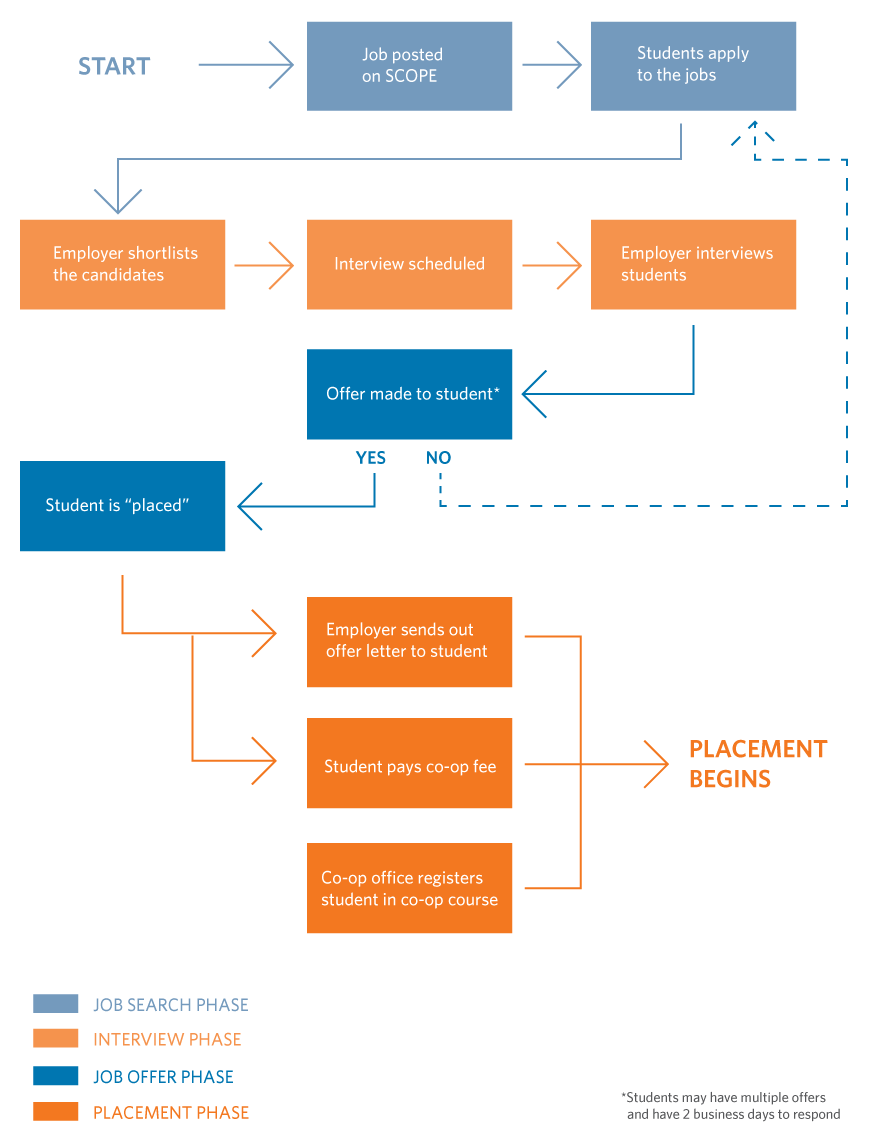UBC Science Co-op works closely with local, national, and international employers to develop challenging, career-related positions for our students.
What is Co-operative Education?
Co-operative Education (Co-op) integrates students' academic education (classroom-based learning) with relevant, supervised, and paid work experience (work-based learning). UBC Science Co-op placements are typically held in three annual work terms: Fall (Sept – Dec), Winter (Jan – Apr) and Summer (May – Aug). During a placement, the student will be supervised, evaluated, and paid by an employer. Undergraduate students earn a degree with the Co-operative Education designation by completing the required number of work terms in addition to completing the regular academic requirements in a department.
What is the UBC Science Co-op Hiring Process?

What are the Student Commitments?
- Students must complete the required number of work terms, according to each program's requirements.
- Students will complete an evaluation of their work term, and a work term assignment at the end of each term.
- A Co-op Coordinator will conduct a check-in meeting with the student, advise the student, and provide feedback on the student’s performance. Student and supervisor will complete work term evaluations of both the work performance and the work term assignment.
Does Co-op Replace Courses?
A Co-op work term does not replace, or add academic course credits for that term, and the credits do not count towards graduation. For most programs, being a UBC Science Co-op student will extend the student's degree program by one year. You should consult an academic advisor in your respective department to determine graduation eligibility.